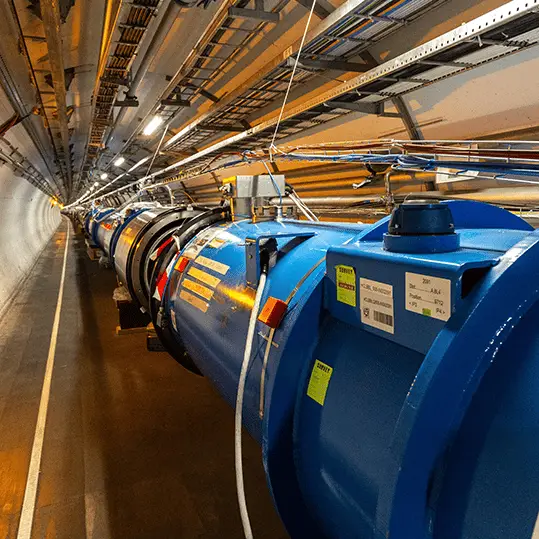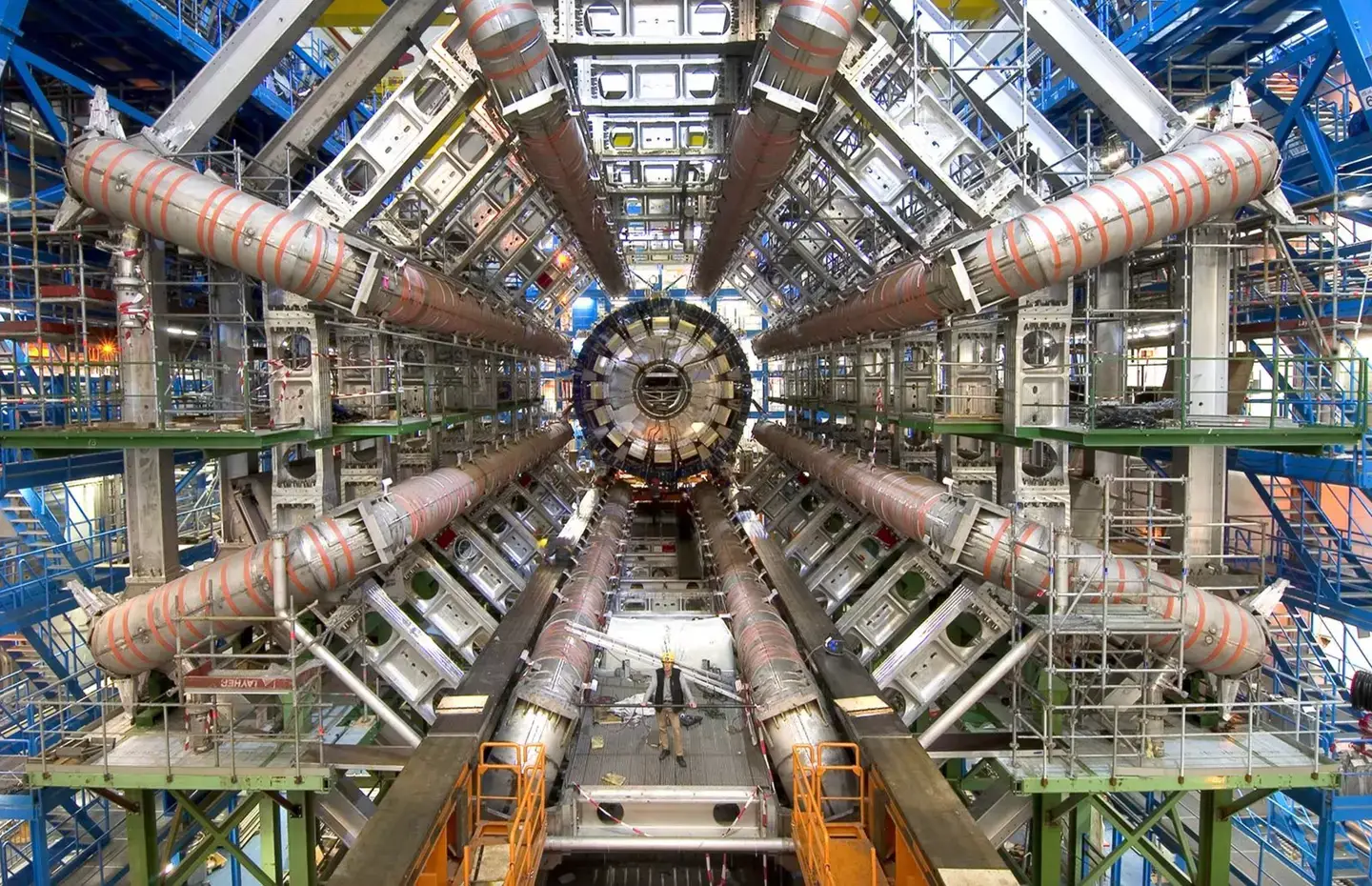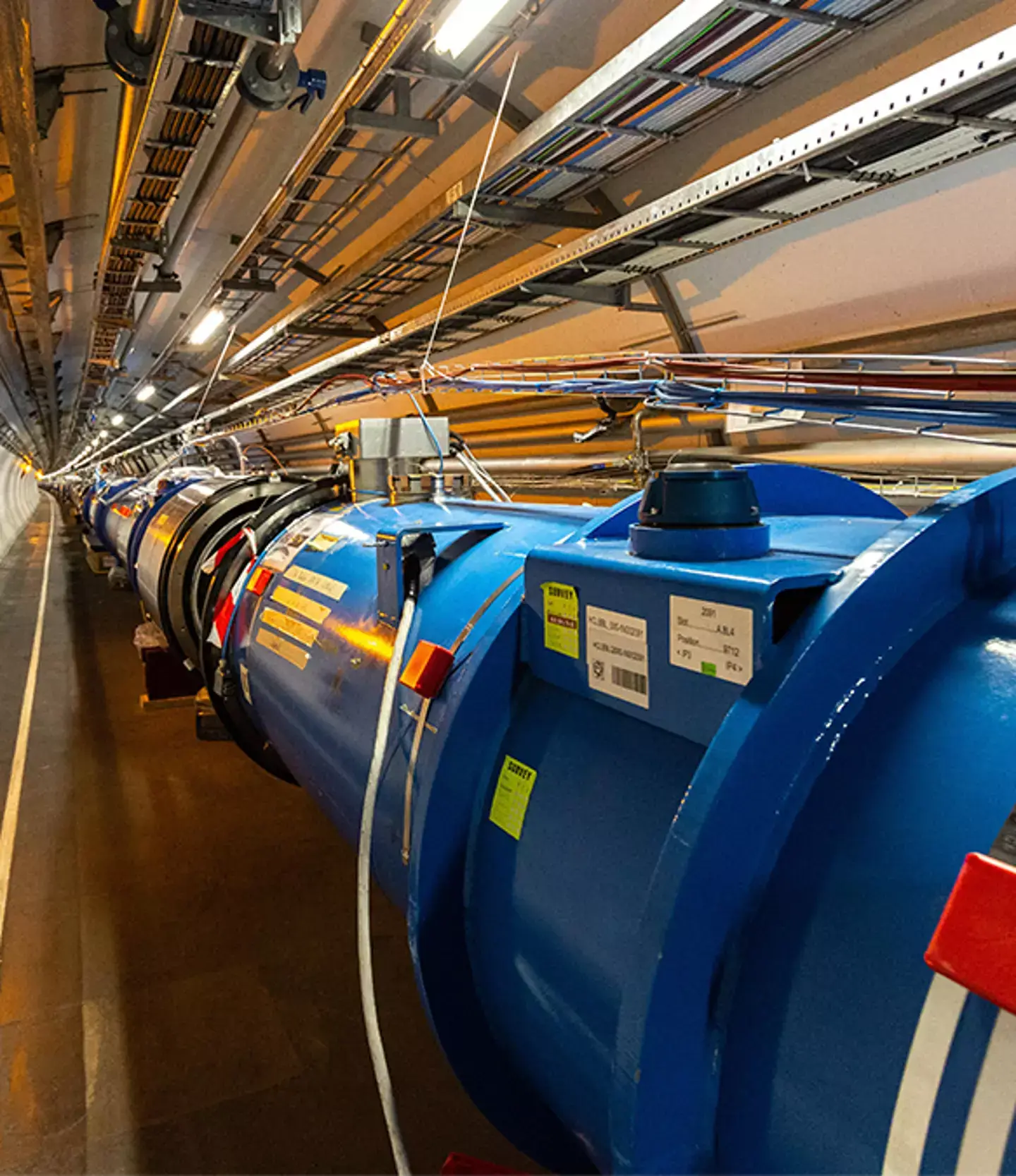
A scientific structure dubbed ‘demonic technology’ by Elon Musk is due to close later this month—here’s why its reign is coming to a temporary end.
Between 1998 and 2008, a staggering 10,000 scientists from more than 100 countries built the world’s largest and highest-energy particle collider.
The so-called ‘death machine’ stretches for 27 kilometres (17 miles) in a tunnel beneath the France-Switzerland border near Geneva and has acted as a crucial tool for researchers to further their knowledge of the universe.
Over the years, experts have studied unresolved questions in particle physics and in 2012 the discovery of the Higgs boson was announced.
Advert
A decade after the elementary particle was discovered, Tesla’s CEO Musk, 53, took to social media to beg physicists to let him try out the particle collider.
But what exactly is it, who owns it, and why is it shutting down at the end of this month?

What is CERN?
CERN is the European Organization for Nuclear Research, located on the France–Switzerland border in Meyrin, Geneva.
It is considered one of the world's largest and most respected centres for scientific research, CERN was established in 1954 and is responsible for building the Large Hadron Collider (LHC).
What is the Large Hadron Collider?
The Large Hadron Collider (LHC), often called a ‘death machine’, is where scientists work to collide at high energies to achieve particle acceleration.
The machine has a circumference just shy of 27km (17km) and has been in operation for 14 years.
LHC consists of four crossing points where the accelerated particles collide, allowing scientists to study their reactions and the energies they produce.
Following the discovery of the Higgs boson, the LHC was shut down for maintenance before reopening three years later in 2015.
In 2018, the machine was shut down for maintenance and upgrades. It reopened in April 2022, prompting a flurry of conspiracy theories to fly across social media.

What did Elon Musk say about LHC?
Following LHC’s reopening, the SpaceX founder took to X, formerly known as Twitter, to plead with CERN scientists to let him use the LHC.
“Please let me use the CERN Large Hadron Collider,” he wrote. “I am normal and can be trusted with a demonic technology unlike anything the world has ever seen.”
Why is the LHC ceasing operation again?
In February 2024, CERN published an article detailing how the ‘recommissioning of the accelerator complex’ has gathered pace, with the scientific community eagerly awaiting particle beams in their experiments.
Following the 2023 year-end technical stop (YETS), CERN announced that several machines were poised to ‘resume beam operation.
This year’s run will continue up until October 28, when the 2024 YETS will commence.
It is not yet known when the LHC will begin operation again, but you can expect it to become operational once more in early 2025.
